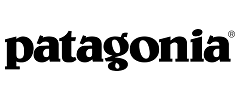Low dose conference held in Berlin on Sept 11 – 13th 2012
WECF along with a number of other NGOs participated in the low dose conference “From theory to practice” in Berlin, organised by NIEHS.
25.09.2012 |WECF
Within the EU and other OECD countries, toxicity levels are set very high, at the level of a poisoning. Therefore, the testing practices in place often do not consider the effects of low doses of exposure to chemicals. especially EDCs have the ability to disrupt the human hormone system in low doses, but might not do so in high doses. Hence, with the high toxicity levels, the health risks of EDCs are simply overlooked and ignored. especially pregnant women and young children are at risk of EDCs, as WECF educates on the Nesting Project website.
Using a new on-the-spot-voting tool, one of this conferences conclusions by a vast majority (90%) of the participants was that there is such a thing as a low dose effect. It was demonstrated that non-monotonic low dose response curves do exist. This means that effects of exposure to low doses does affect the body, but not at very high doses which would be considered to cause poisoning. However, participants also agreed that current OECD standards were too constraining, for instance in cost and reproducibility demands, to allow for testing for low dose effects.
On the second and third day, workshops focused on suggestions for improving risk assessment. Strategies named were to test and assess risks by starting with tests based on computer models, moving to extensive in vitro (live cell-cultures) testing. After this, if necessary, testing on live animals could be pursued.
See for more information on the conference here.
Related News
Getting to the Future We Want
4-7 November, Brussels: European Environmental Bureau’s (EEB) Annual Conference
12.11.2018
Human Biomonitoring for Europe
Vienna, 26 September: stakeholder forum
28.09.2018
A life without plastic, wouldn't it be fantastic?!
Interview with Charlotte Schueler of @PlastikfreiLeben, who lives a zerowaste life in Munich, Germany and shares her experiences to her 25.2 thousand followers on instagram & 37.2 thousand followers on facebook
14.09.2018
Calling for periods free from plastic & hazardous chemicals
Letter to Frédérique Ries, MEP, European Parliament on behalf of the #BreakFreeFromPlastics movement
04.09.2018







































